Rev. Fr. Vladimir Echalas, SOLT, CBCP Research Director, Prof. Dr. Florence Co-Navidad of the Faculty of Pharmacy and Chair of the UST-Institutional Research Ethics Board (IREB), and Prof. Dr. Marites Redoña of the Institute of Religion and Researcher at the Research Center for Theology, Religious Studies and Ethics, presented the key results of the study “The Lights and shadows on the Present State of Catholic State of Catholic Christianity in the Philippines toward becoming a synodal Church” to the national gathering of Bishops and diocesan synodal representatives during the 130th CBCP Annual Retreat and Plenary Assembly held in Tagbilaran, Bohol from June 30, 2025 to July 3, 2025.
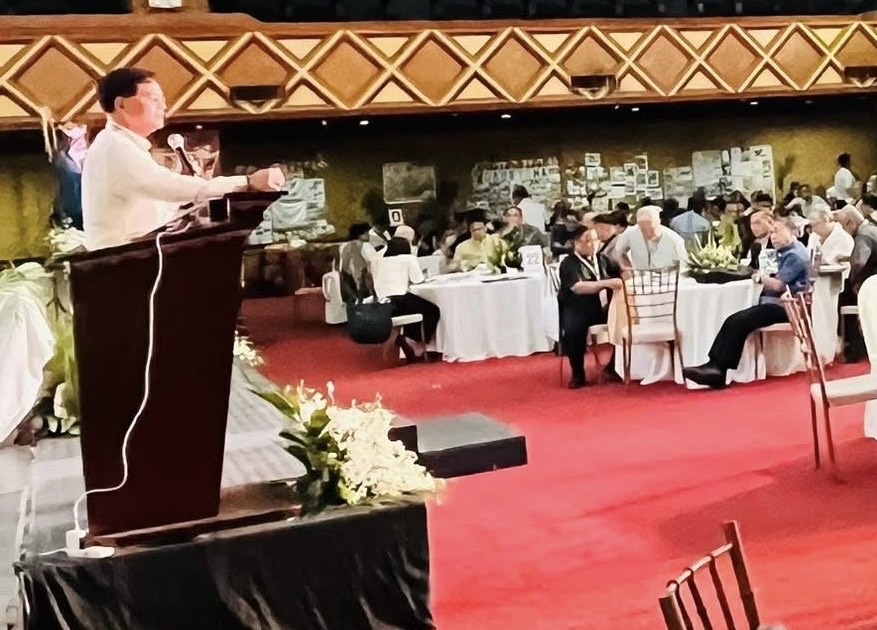
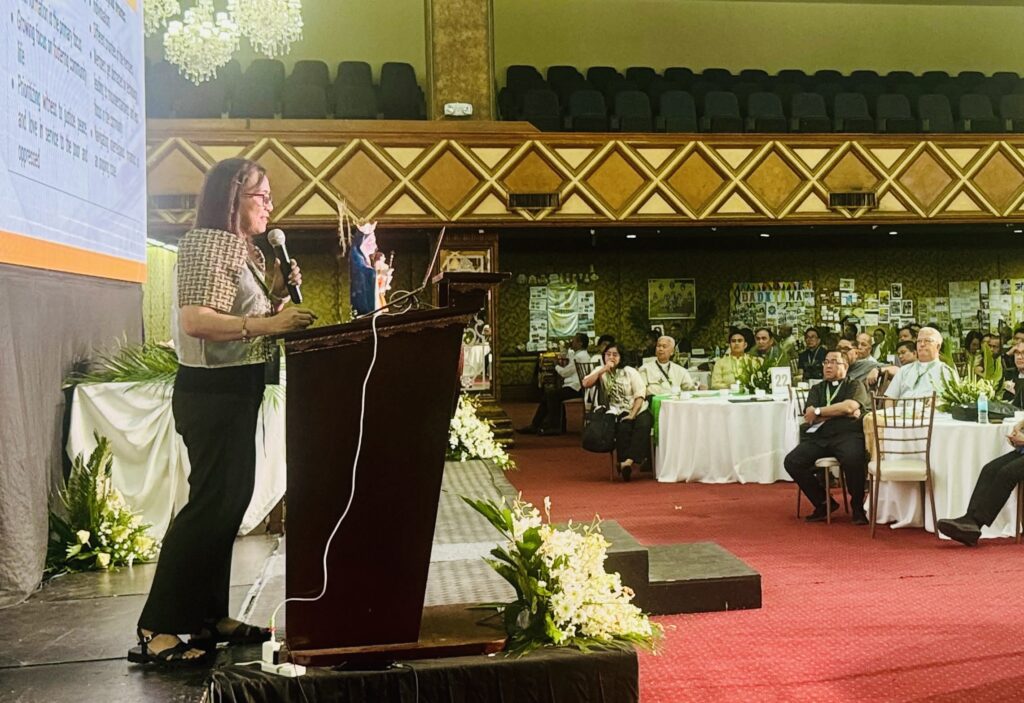
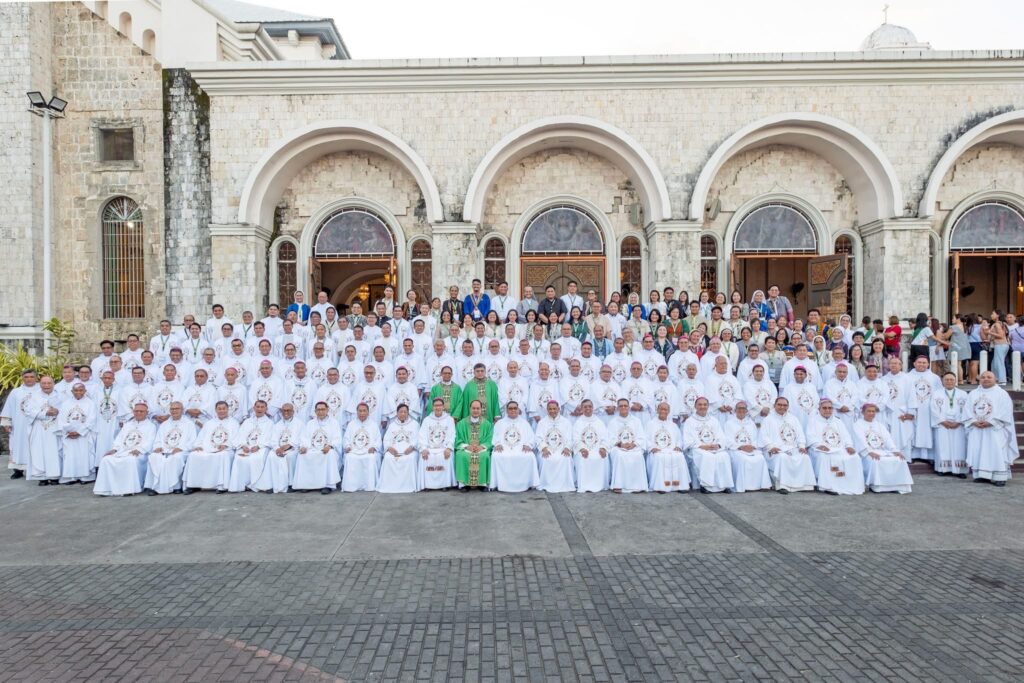
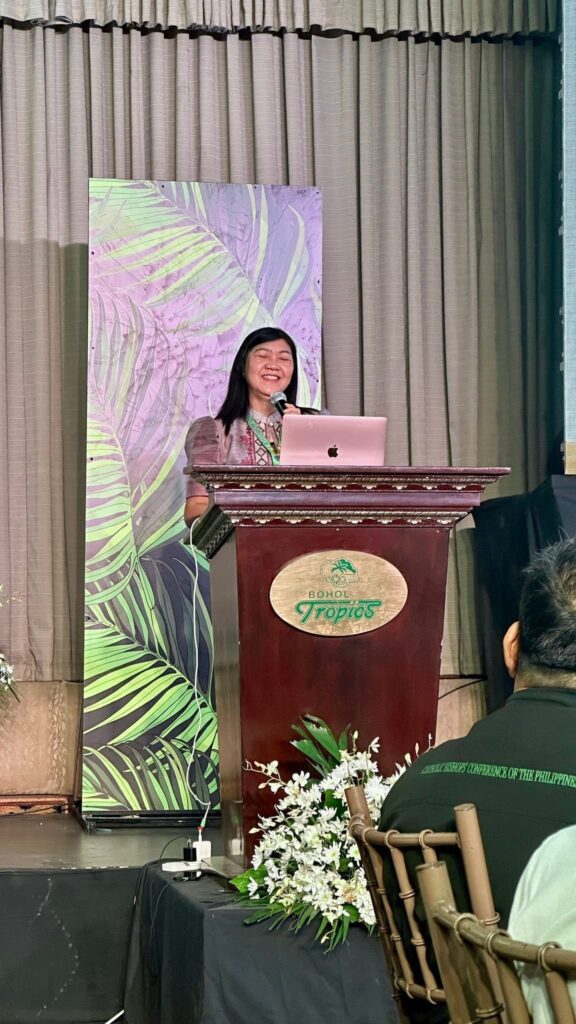
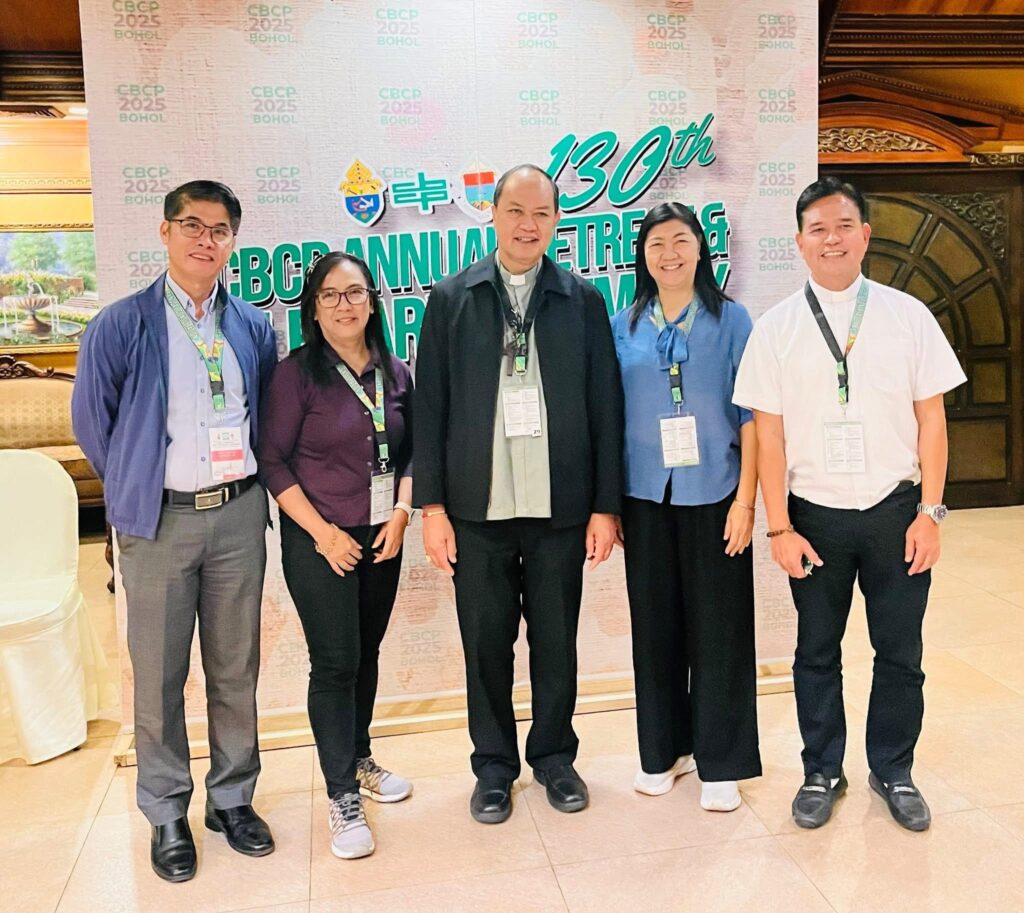
The study is a joint project of the Catholic Bishops’ Conference of the Philippines Office of Research and the University of Santo Tomas Research Center for Theology, Religious Studies, and Ethics.
The presentation about the “lights and shadows” of the Churches in the Philippines includes the following areas: diocesan ministries, Clergy, Consecrated life, lay organizations, lay individual Catholics, and non-Catholics. On diocesan ministries, the study shows that while there are high levels of satisfaction and happiness in the diocesan ministry, there is low community engagement, especially from youth and marginalized groups.
In the case of the Consecrated Life, the study indicates a high priority in witnessing justice, peace, and love in service to the poor and oppressed; at the same time, members get distracted by technology, leading to misunderstanding and less focus in the community. While close collaboration is valued for the Clergy, authoritarian leadership and clericalism remain challenging in becoming a synodal church. For the lay faithful, while there is a strong belief in the Eucharistic-centred life, they felt that there is a lack of inclusivity and that marginalised groups are still excluded and not openly accepted in the Church. What is rather alarming is the decrease in church attendance.
The data provides an evidence-based understanding of the state of the Church in the Philippines regarding the experiences, opportunities, and challenges of becoming a synodal church. All the bishops and delegates were provided with a complete e-copy of the national data. The data was used so that the participants could reflect on and discern the national framework for implementing synodality in the country.
In his concluding homily, His Excellency, Most Rev. Herman Abcede, Bishop of the Diocese of Daet, urged the delegates to “do the B.E.S.T.” in carrying out the fruits of the synodal journey back to their respective dioceses: Believe even amidst uncertainty, Enter into the lives of others, particularly the marginalized, See with spiritual eyes, and Touch through tangible action and engagement. Bishop Abcede emphasized that the Holy Spirit remains the ultimate guide in this process, calling for profound interior conversion and renewed commitment to mission.
The research team includes Prof. Dr. Allan Basas, Assistant Director of the Institute of Religion; Pablito A. Baybado Jr., Ph.d., Theology Program Lead of the Graduate School; and Associate Prof. Philip Fuentes of the Institute of Religion. All are researchers of the Center for Theology, Religious Studies and Ethics, with Prof. Dr. Joel Sagut, Director of the Research Center for Theology, Religious Studies and Ethics, and Ref. Fr. Louie Coronel, OP, UST Secretary General, as consultants.


